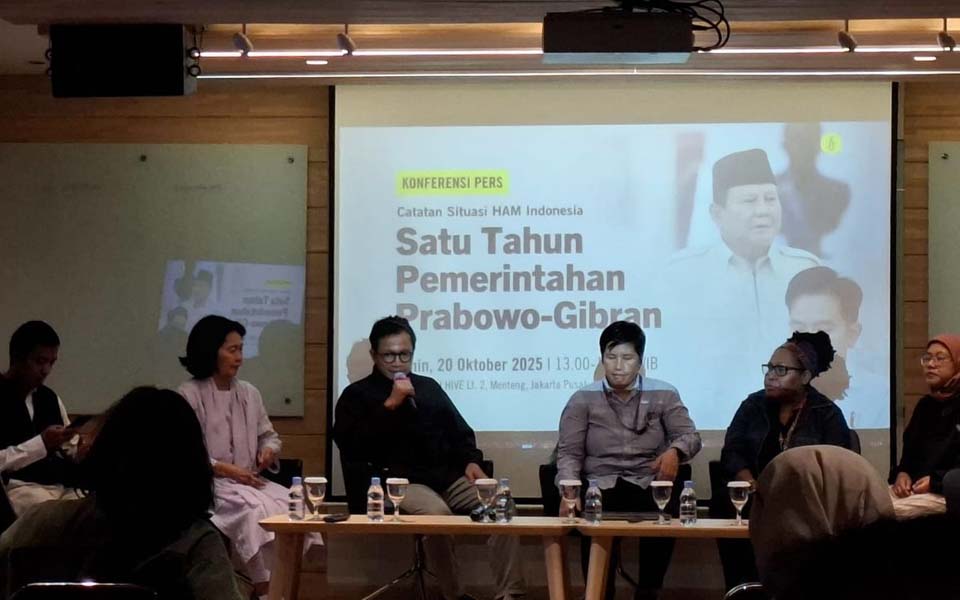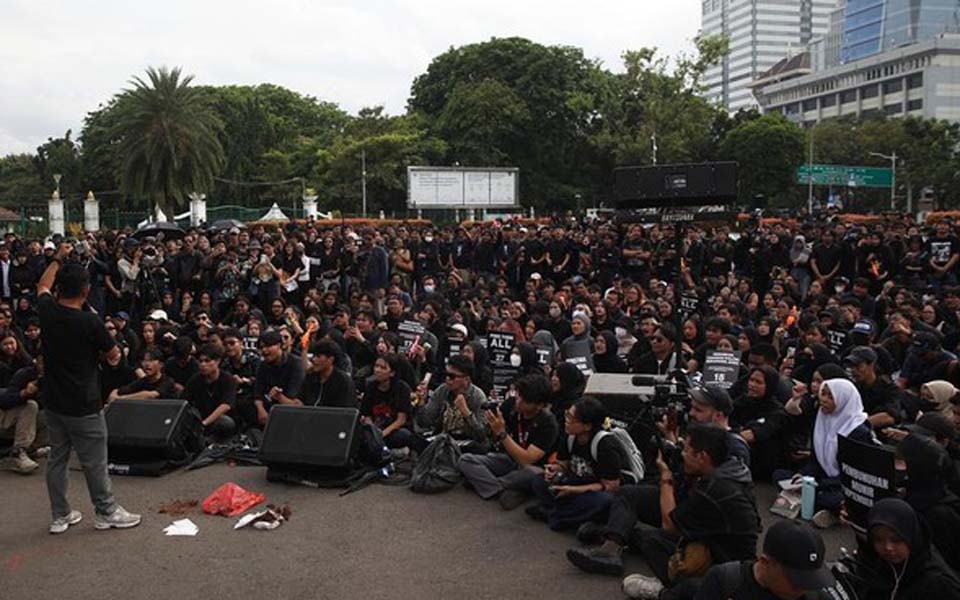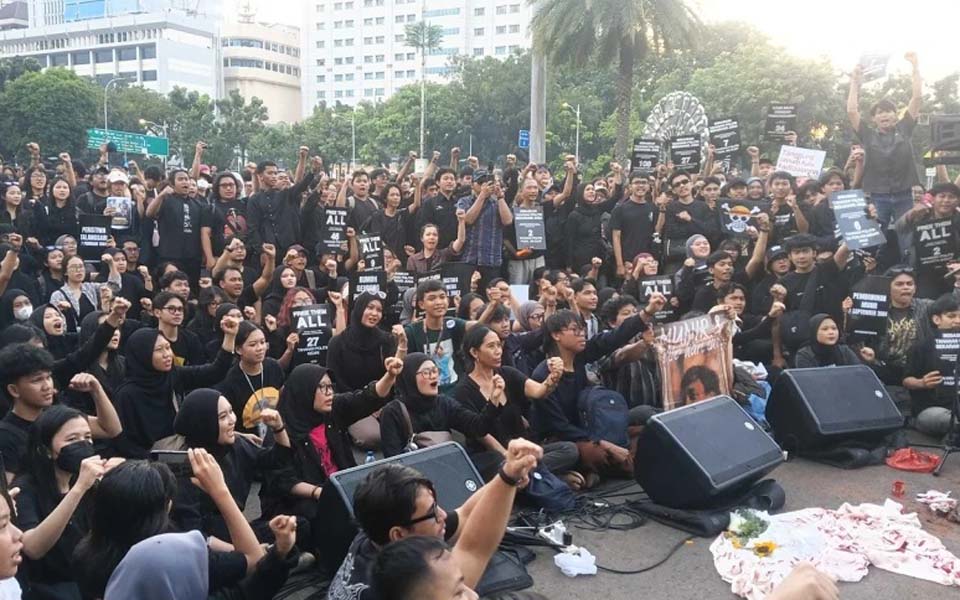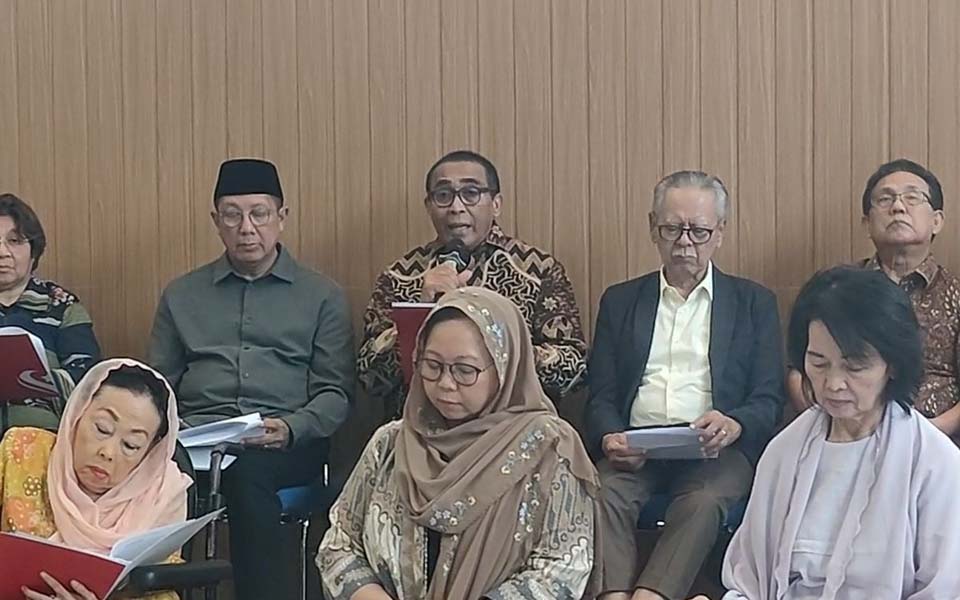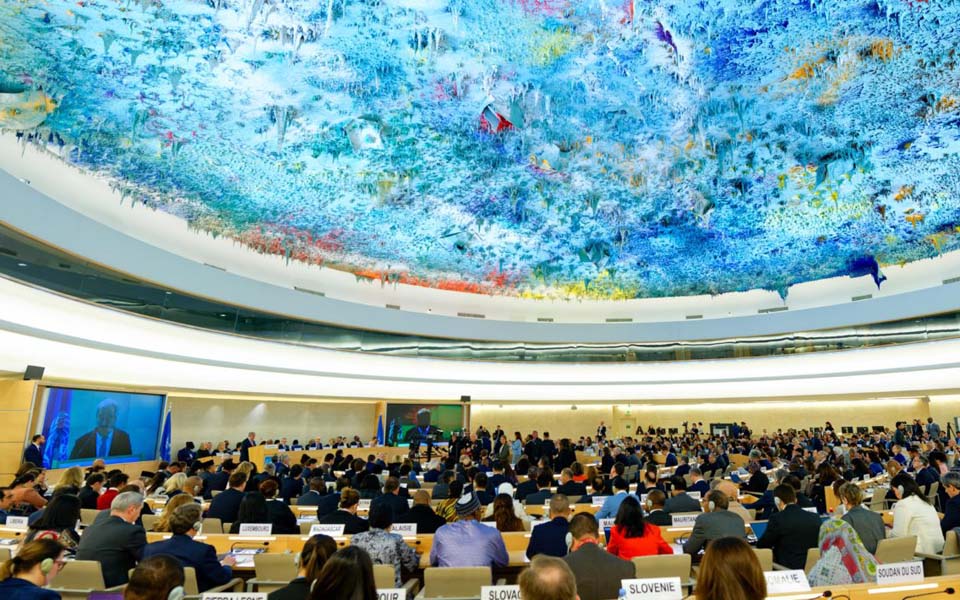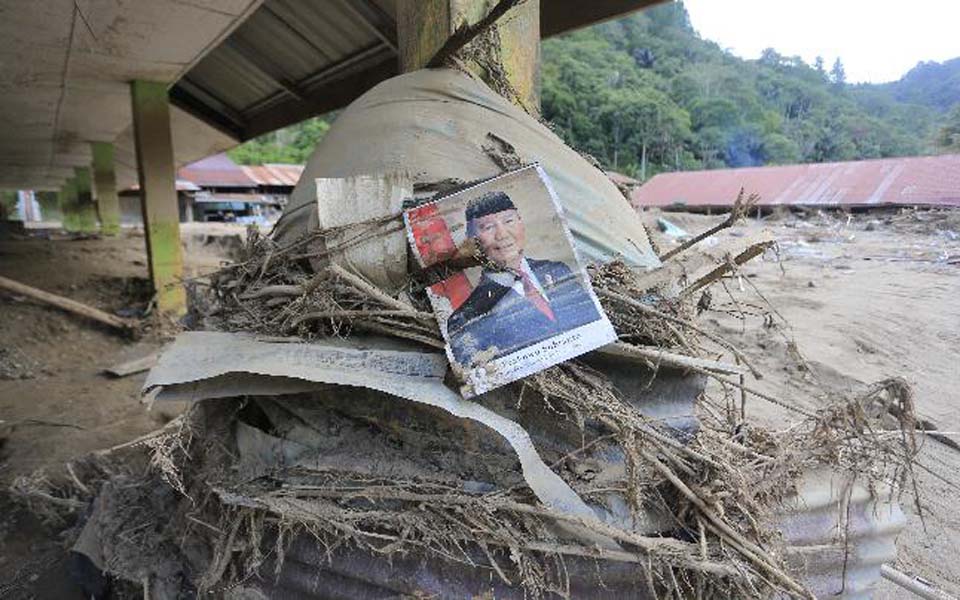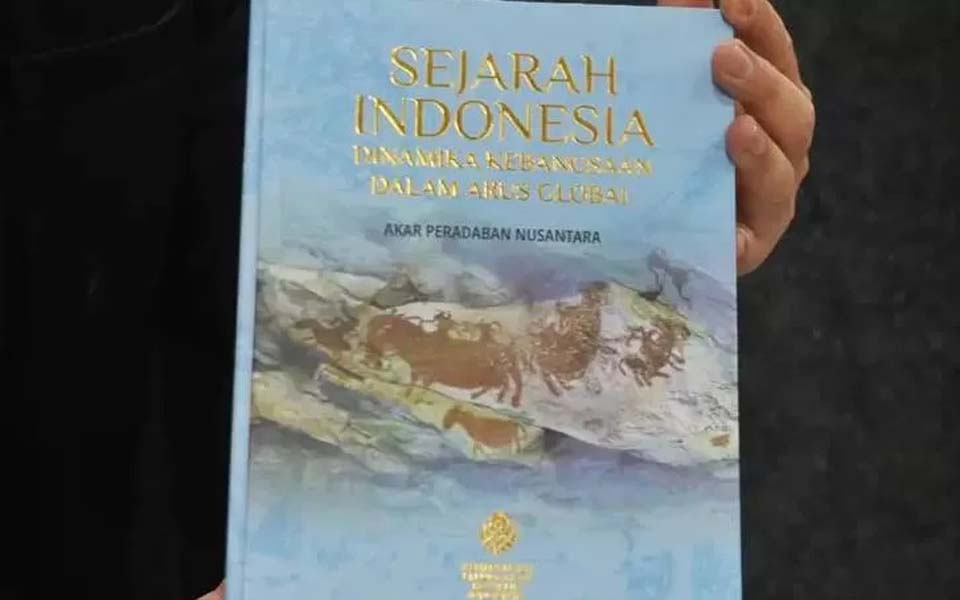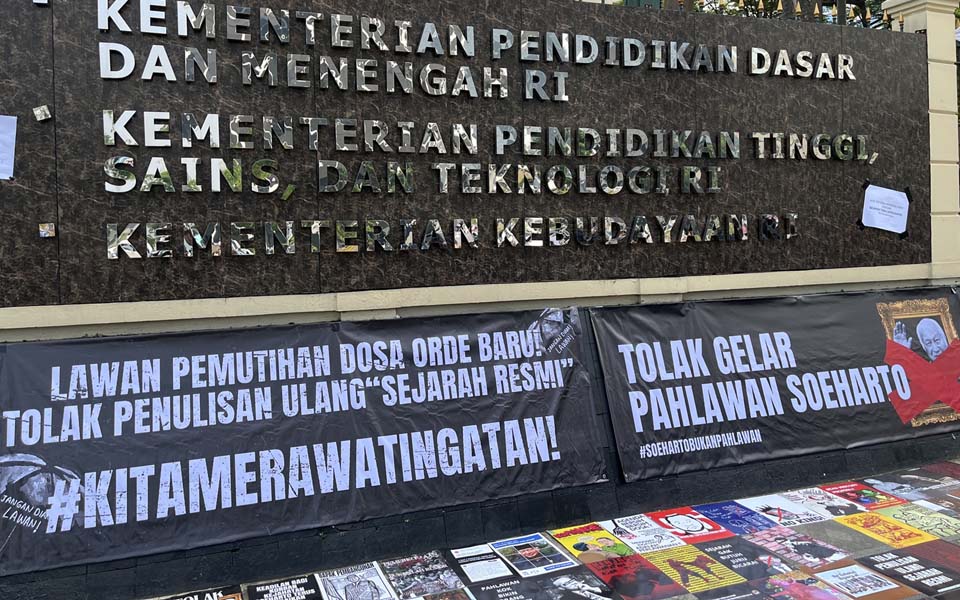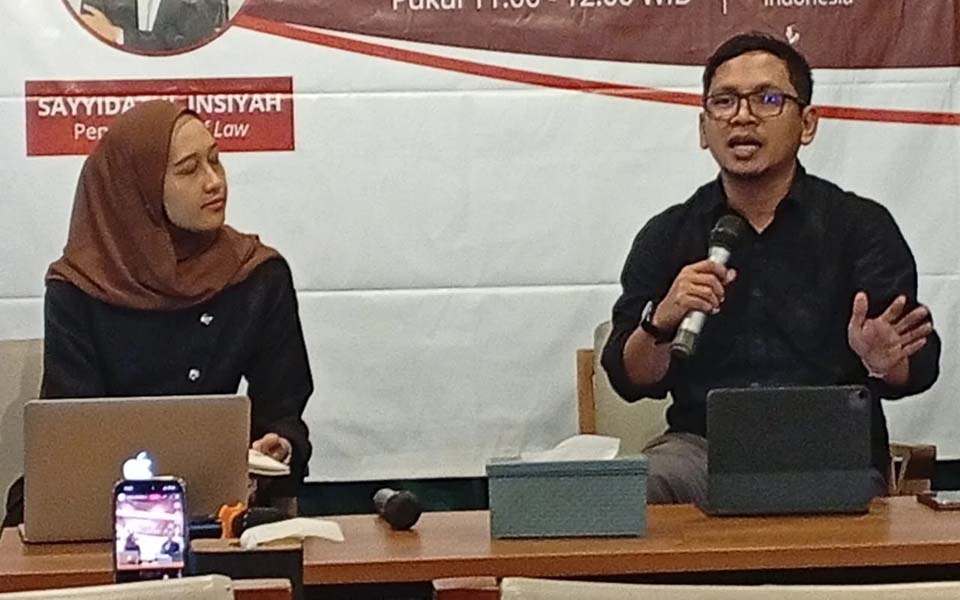Nicholas Ryan Aditya, Ardito Ramadhan, Jakarta – Amnesty says that the first year of the administration of President Prabowo Subianto and Vice President Gibran Rakabuming Raka has been marked by paradoxical public policies and a decline in respect for human rights.
Amnesty International Indonesia Executive Director Usman Hamid said that the Prabowo-Gibran administration's policy direction has displayed a populist image on the one hand, but was ridden with elite interests on the other.
"So, the claim is that it's about the interests of the lower classes, but in reality, it's about the interests of the elite", Hamid said at a press conference on the first anniversary of the Prabowo-Gibran administration in Jakarta on Monday October 20.
Hamid explained a number of things that Amnesty International has highlighted about the first year of the Prabowo-Gibran administration.
First, Amnesty highlighted growing re-militarisation in the civilian sphere, which Hamid said was evident in the revision to the Indonesian Military (TNI) Law that expanded the role of active officers in civilian positions, the involvement of the military in non-defence projects and the increase in the number of territorial commands.
"So currently, there are a total of 22 Kodam (regional military commands). By 2029, it's estimated there will be 37 cities. This means entire provinces are under military control and influence. And that indicates that Indonesia as no longer a democratic country", Hamid explained.
He also noted that at least 15 military figures held strategic positions in Prabowo's cabinet, including in civilian institutions such as the National Nutrition Agency (BGN).
In terms of economic and social policy, Amnesty highlighted the Free Nutritious Meals (MBG) program, which is considered to be poorly planned and actually burdening the education budget.
According to Hamid, most of the program implementers are also male military personnel and there is minimal participation by the community or women.
"And this Free Nutritious Meals program is dominated by military personnel, especially male military personnel. So it doesn't involve women or the community", he said.
The program was also seen as ironic as 44 percent of the education budget has been allocated to the program while many schools are in disrepair and teachers are underpaid. Therefore, the MBG was considered a populist policy that has failed to address root of the problem.
In addition, Amnesty also criticised the waste of state funds through the formation of a huge cabinet and increasing allowances for public officials amidst budget cuts for human rights institutions such as the National Human Rights Commission (Komnas HAM), the Witness and Victim Protection Agency (LPSK) and the National Commission on Violence Against Women (Komnas Perempuan).
Amnesty believes that the first year of the Prabowo-Gibran administration was also marked by restrictions on civil liberties and the increased arrests of activists and students who voiced criticism.
Hamid gave the example of the arrest of Muhammad Indra Setiawan, a high school student who is still being detained and threatened with expulsion from school after taking part in a demonstration.
According to Amnesty's data, there were 269 attacks against human rights defenders over the past year. Of these, 112 were journalists and 81 were indigenous activists.
"These are figures we can take note of. Not as statistics, but to show that numerous human rights violations are indeed occurring. Many human rights activists have been attacked", Hamid explained.
Amnesty also highlighted the government's policy of rewriting national history, which is considered as an effort to erase the facts about past gross human rights violations, as well as plans to award the title of national hero to former president Suharto.
Hamid considers this move a form of state denial of human rights violations, especially when accompanied by statements by several ministers that were deemed insensitive to humanitarian issues.
"Coordinating Minister for Law, Human Rights, Immigration and Correctional Institutions Yusril Ihza Mahendra stated that the May 1998 tragedy was not a human rights violation. As I mentioned earlier, the Minister of Culture [Fadli Zon] is rewriting history by erasing gross human rights violations. He has stated that the mass rape of ethnic Chinese women never happened. That there's no evidence, just rumours", explained Hamid.
"If just one minister denies gross human rights violations, we might still see it as a slip of the tongue. But if it's more than one minister, more than two ministers, we feel its government policy, state policy", he added.
In its evaluation, Amnesty noted two major trends during the last year of the administration: the erosion of civil and political liberties and the erosion of economic, social and cultural rights.
For example that the handling of the demonstrations in late August which were often marked by the use of excessive force, with more than 4,400 arrests and 700 cases of physical violence.
Meanwhile in Papua, Amnesty highlighted the continuing occurrence of arrests, charges of maker (treason, subversion, rebellion) and cases of death during peaceful demonstrations.
"Finally, people and activists continue to experience criminalisation when they voice criticism", said Hamid.
[Translated by James Balowski. The original title of the article was "Catatan Amnesty International soal Situasi HAM pada 1 Tahun Prabowo-Gibran".]





